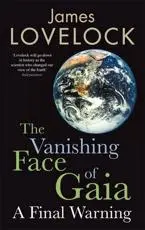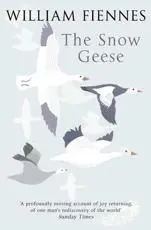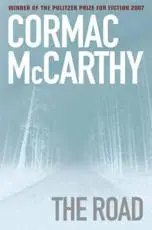Mark Lynas is an activist, journalist and traveller. He was editor of the website www.oneworld.net and has made many appearances in the press and TV as a commentator on environmental issues. He also throws custard pies at lunatics who pronounce global warming a fantasy.
My favourite books of the decade are:
|
 |
The Future of Life by Edward O. Wilson
Too often biodiversity is the poor relation to climate change: no-one marches to protect the rapidly depleting treasury of plants and animals that share this Earth with us. Evolutionary biologist E.O. Wilson issues a tremendous call to arms, and offers stirring words about why extinction is a fate worse than death, something we should do all in our power to resist.
Buy the book
|
 |
The Unnatural History of the Sea by Callum Roberts
In his extraordinary history of the sea, Callum Roberts tells a powerful tale about man's overexploitation and greed, from the extinction of the great auk to the slaughter of the whales. The pattern is depressingly similar in each case: humans discover a rich and apparently inexhaustible resource and proceed to plunder it with no thought for the future. Can we change our behaviour? Roberts thinks we can, and suggests a list of how fisheries can be better managed.
Buy the book
|
 |
The Vanishing Face of Gaia by James Lovelock
Although always a controversialist, we owe to James Lovelock one of the great insights of the last century - that of our planet Earth as a self-sustaining super-organism, regulating its own climate for the benefit of its biota. Paying no heed to environmental political correctness, Lovelock dismisses conventional wisdom in every area, from nuclear power to climate change modelling. He may not be right every time, but he can never be ignored.
Buy the book
| Back to top
|
|
|
Robert Macfarlane's Mountains of the Mind won the 2003 Guardian First Book Award. He is a Fellow of Emmanuel College, Cambridge and the author, most recently, of The Wild Places.
My favourite books of the decade are:
All three are way books, journey books, but of very different kinds.
|
 |
The Snow Geese by William Fiennes
Fiennes's The Snow Geese describes his pursuit of the vast snow-geese flocks, on their seasonal migration northwards up through America, from deep south to far north: the book becomes a beautiful meditation on the twinned compulsions, felt by animals and humans, to roam and to reside.
Buy the book
|
 |
Waterlog by Roger Deakin
Roger Deakin's Waterlog is animated by the same interests, but his journey is an aquatic one; Deakin swims 'through' Britain - its lakes, rivers, streams and seas, and in so doing achieves a completely original 'frog's-eye view' of the landscape.
Buy the book
|
 |
The Road by Cormac McCarthy
Then McCarthy, well, it's a walk through a vision of our shattered future. A man and a boy traverse an ash-grey post-apocalyptic America in which the only significant surviving objects are Coke cans and shopping trolleys. Chastening and unforgettable.
Buy the book |
Back to top
|
|
|
Martin Meredith is the author of many acclaimed books on Africa including the lives of Robert Mugabe and Nelson Mandela and the bestselling The State of Africa. He lives near Oxford.
My favourite books of the decade are:
|
 |
Blood River: A Journey to Africa's Broken Heart by Tim Butcher
Inspired by the travels of Joseph Conrad and Henry Morton Stanley, Tim Butcher sets out on a perilous journey across the lawless regions of the Congo, telling his tale of risk, adventure and lunatic bravery with wit, passion and empathy for the people he meets along the way.
Buy the book
|
 |
Zulu: The Heroism and Tragedy of the Zulu War of 1879 by Saul David
Never has the story of Britain's war of conquest of the Zulu people in the nineteenth century been told with such verve and clarity as in Saul David's Zulu. David blows away many of the myths surrounding the British army's catastrophic defeat at Isandlwana and its heroic defence of Rorke's Drift.
Buy the book
|
 |
The Barefoot Emperor: An Ethiopian Tragedy by Philip Marsden
Combining his talents as a travel writer with skilful historical research, Philip Marsden provides a riveting portrait of Tewodros II, the nineteenth century Ethiopian emperor renowned for his habit of taking European visitors hostage, eventually prompting the British army to mount a bizarre rescue mission that culminated in his suicide.
Buy the book |
Back to top
<<< Back
Next >>>
|
|
|



